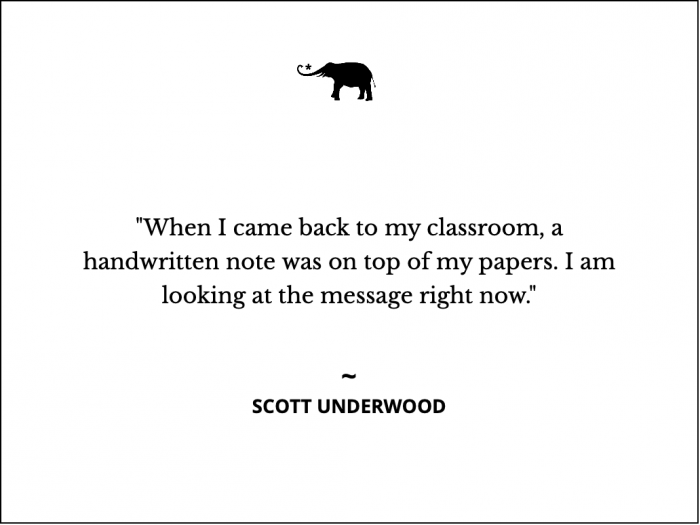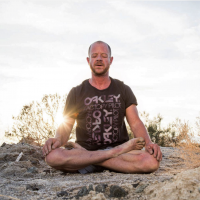I had the blessing of being able to sit down and chat with an 88-year-old Jewish woman named Pearl who has Parkinson’s disease (which is noticeable) along with going blind.
She has her PhDs in 1600 British Literature and 20th Century American Literature.
We were in my classroom where her son, my boss, had left her in my hands for a moment. She looked around the college classroom with a melancholy smile. She still had a couple of papers that she wanted to write and publish but was unable to read due to losing her eyesight. She also could not research, and because of Parkinson’s, she could not type with her trembling hands.
She said, “I guess the Modern Language Association will survive without any more of my input.”
I told her, “Sure, but the discipline will not be as rich. There has to be a way—I can’t imagine you not finishing up your career how you want to.”
She responded, “Sometimes the world is sh*t; mostly, it is glorious.”
It reminded me of a conversation with my mother, who has lived for far too long with an enormous amount of continuous and increasing pain. She had said at a low point that the world could be an awful place.
I wanted to tell Pearl about this, but I found myself talking about my stepfather, who was virtually deaf at the end of his life. He could hear me because I am a loudmouth, but most people were too quiet to get through. He spoke to me about feeling lonely even in a room filled with people; even when he thought he heard people correctly, his responses were often wrong, making him feel like a stupid nuisance.
She said, “That’s true; it’s very isolating. But, you know about that.”
Pearl kept asking me about my life, what my studies were, who I was sleeping with. (Yes, that happened.) I told her that I’d rather hear her story.
She said, “We can talk whenever you want to buy me a cup of coffee. My story is not free.”
“I wanted to talk with you, and I am old. I know that you’ve opened yourself up, and that’s painful.” When I objected, she said, “There’s an idea some of us Jews have. It is called Tikkun Olum.”
Because of her Parkinson’s, it wasn’t easy to understand her. I could see her irritation with herself. It reminded me of my stepfather at those moments when he could not communicate. She repeated it. I nodded my head as if I understood—it’s something we do to make people think we understand. We tell ourselves that we do it because we are trying to be kind, but when we think about it, isn’t that the opposite of kind? Isn’t that stealing someone’s message from them because we are the ones who are too uncomfortable?
Of course, this was not a stupid woman, and she knew what I was doing. “Tikkun Olum: it’s the idea that not only are we responsible for our own ethical and spiritual health, but we are also responsible for society’s ethical and spiritual health.”
I told her that was in line with my own studies of Yamas and Niyamas. I went a little further describing Prince Arjuna’s struggles in the Bhagavad Gita. “It’s all about dharma and karma yoga.”
She said, “I know. That’s also why I want to talk about you. Sometimes the world is sh*t, but we can make it better. Tikkun Olum is your dharma and karma.”
As an English major, I know that sentences can be read in at least two different ways.
Suddenly, I had to go for a minute to attend to some false and temporary crisis, and she had to take off soon. She asked if I was vaccinated, and I told her I was. Then, she hugged me goodbye.
When I came back to my classroom, a handwritten note was on top of my papers. I am looking at the message right now. The letters are shaky because of her trembling hands, but the note says:
“Tikkun Olum.”
Heal the world.
~












Read 0 comments and reply